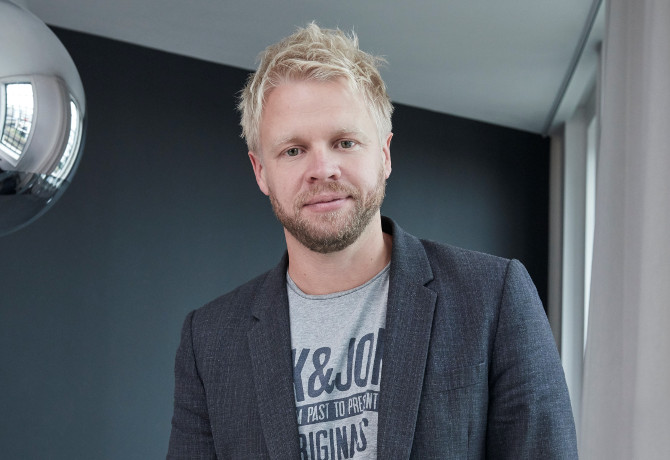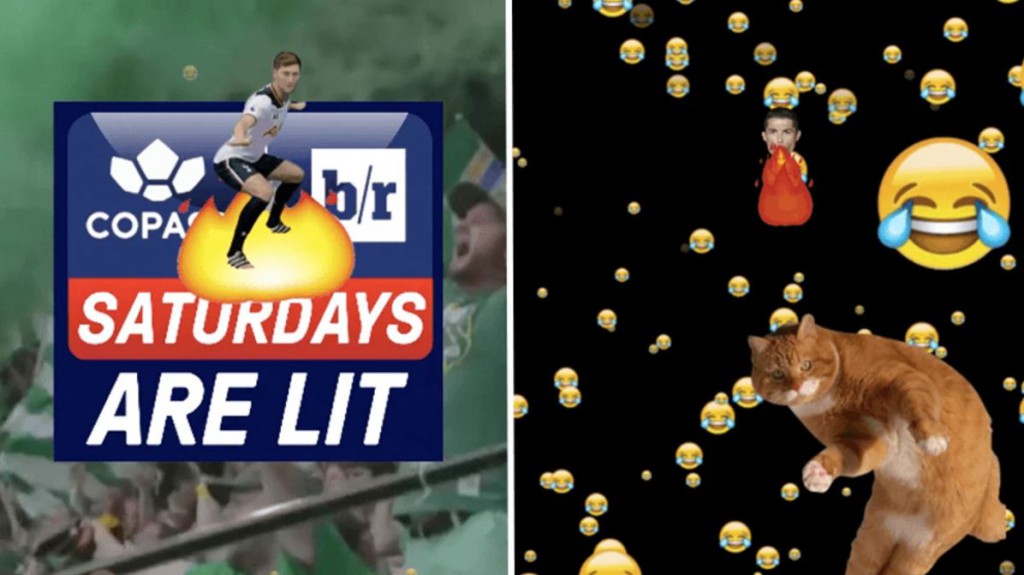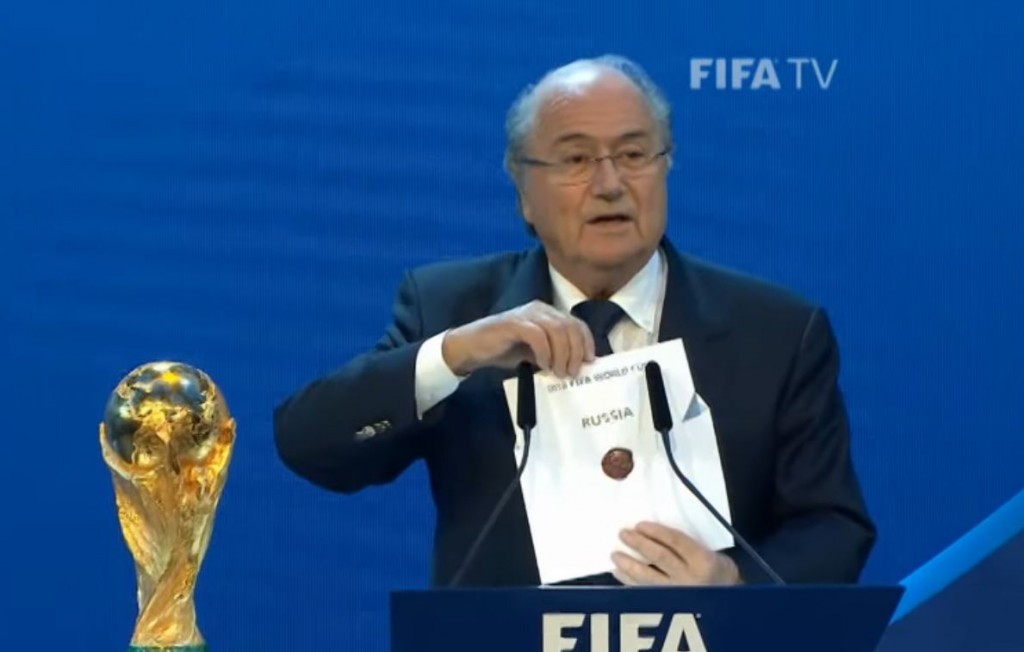James Kirkham, head of Copa90, argues brands must embrace digital video ‘moments’ for marketing relevance during next year’s World Cup in Russia.

It was the moment that arguably changed sports marketing forever.
With the media feverishly anticipating the completion of France international Paul Pogba’s world record £100m ($125m) transfer from Juventus to Manchester United, a video appeared online featuring Pogba with British grime music star Stormzy apparently confirming the news. The Adidas-branded video (see below) was pulled within hours, but not before it had amassed millions of views.
Lo and behold, the transfer was soon confirmed, and the usual package of official statements and posed photographs were distributed to media outlets. But the story now belonged to rapper Stormzy and, most significantly, Adidas, an official partner of the Premier League club.
For James Kirkham, the head of football content business Copa90, this strategy not only represented the “most brilliant piece of communications in a decade”, but reflected the change tearing through the multi-billion dollar global sports media industry. Mobile-orientated, talent-led content is in, and tedious “suits and studios” are on the way out, he argues.
Football content without the goals
Copa90’s success was by no means guaranteed. When it was launched in 2012 by Bigballs Media, it was lampooned for its lack of rights. Would Millennial and Gen Z consumers really watch football content without any goals? The 1.5 billion-plus video views in the intervening five years would suggest so.
“Copa90 was built as a business without rights to football and, as such, it was laughed at by some people. It ended up becoming its raison d’être, its totem of neutrality and authenticity. It is a pillar of legitimacy for football fans, because we are not tied to any one club, federation or brand,” says Kirkham, a speaker at this year’s Festival of Media Global 2017 in Rome.
“There are lots of people who say, ‘We want to be like Copa90,’ and they have admitted that to my face. I teach [the Copa90 team] that they are of no interest. We are going against 100 years of sports media, we are trying to disrupt 100 years of how football media has been seen. A modern fan needs more in their diet than that offers.”
Not just a YouTube channel
Upon joining Copa90 in January 2016, former Leo Burnett head of mobile and social Kirkham had two key tasks: to help the company become platform-neutral, and to engage brands.
Copa90 began life on YouTube, twice receiving investment from the Google-owned video platform, before going in search of Series A funding. Last month it welcomed investment from broadcaster Turner. Kirkham says the channel’s creators needed to learn to view all platforms – from Snapchat to messaging apps – as of equal significance.
“This was a business still best-known for YouTube. I’d never say I’m anti-YouTube, but I never wanted us to be called solely a YouTube channel again,” he says. “The brilliance of [Copa90’s] storytelling should not be more important on one platform or other. I wanted us to be famous for what we were doing on Snapchat, and I wanted us to try things on messaging apps.”
Pilots on messaging apps – ecosystems Kirkham believes will come to dominate media consumption habits within as little as 18 months – followed during last summer’s Euro 2016 championships. And it is rapidly upscaling on Snapchat: its irreverent ‘Saturdays Are Lit’ show, produced weekly, has already become its most popular content strand.

Brands don’t bite
The football network also needed to understand that brands and advertisers offered “nothing to fear or worry about”, says Kirkham. By entering into deep partnerships with the likes of Adidas and Pepsi, and becoming a “football partner” on brand rosters, Copa90 has been able to boost revenues while enabling greater access to star footballers.
“I’ve always said internally that brands don’t bite. I love the fact they feel the collaboration with Copa90 means something. They want what we do editorially to help shape their communications to position themselves in an authentic light, with an audience that they care about,” says Kirkham.
“I am super proud of our burgeoning relationship with Adidas. They push us, we hopefully push them, and somewhere in the middle is absolutely appropriate content. We get access to talent that we wouldn’t have had, we get money to tell stories we wouldn’t have been able to tell otherwise. It’s so about partnership and collaboration, rather than ‘client says this, here’s the brief’.”
As well as “deeper”, on-going content relationships, Kirkham was also keen to open up Copa90’s inventory and social pages for sponsorship and partners seeking more tactical engagement with football. Brands including Continental Tyres and Europcar have already opted for this more conventional advertising approach, which is also allowing Copa90 to develop its ties with media agencies.
Festival of violence?
Conveniently, Copa90 is able to use major international football tournaments as one- and two-year markers to set regular incremental targets. It currently works with a roster of 200 global content creators, and aims to increase this to 300 by the time the 2018 FIFA World Cup in Russia comes around – with up to 30 operating on location during the competition.
However, the road to Moscow is unlikely to be plain sailing. From the initial outcry against FIFA’s decision to award the 2018 and 2022 World Cups to oil-rich Russia and Qatar, to the ongoing criticism of Vladimir Putin’s leadership of the country, brands are likely to be concerned about the risk of associating themselves with an event some commentators believe will descend into a “festival of violence”.
Kirkham believes the negative predictions have been overplayed: “Since the moment [the World Cup in Russia] was announced, it has been beset by issues. That is mainly down to the fact that we in the West have only given it a one-dimensional perspective.
“We’ve already been there, and we are saying there are two sides to the coin. Russia is a very credible football nation, for starters. When you go out there and speak to young people, they are so thrilled the World Cup is coming. They are going to make it as fantastic as they can, and that is as much for political reasons,” he adds.

No VR World Cup
In-keeping with the shift to social content consumption, Kirkham says next year’s flagship tournament will be defined by “moments”, rather than a studious viewing of all matches.
He predicts that the “humble GIF” will dominate the “alternative discourse” on social media sites like Twitter, and that individual star players will “transcend” their national teams and become the primary conduit through which younger football fans engage with the World Cup.
Next year’s competition, however, is likely to come too soon for any great advancement in virtual reality (VR) content, he says. “I don’t think we’re quite ready for VR yet – it’s not going to be the big VR World Cup. But we will see some interesting experiments, and brands will bring that [content],” says Kirkham.
Advertisers may be tempted to abandon the football schedule to create their own “moments”, he adds, pointing out the success of Red Bull in creating and distributing its own content. Kirkham can even imagine a scenario where brands become the “editor of choice” for the World Cup, curating the most relevant stories for their audiences.
“Brands will look to Red Bull and try to manufacture their own moments. Why don’t we stop relying on something to happen on match four, and stage a moment that we then turn massive? Brands will almost become the new channel choice,” he adds.
Underpinned by passion
For Kirkham, who started his own digital agency Holler aged 23, Copa90 represents the next phase in the digital content revolution.
Having sold his agency to Publicis-owned Leo Burnett, and strived to transform a “giant, cumbersome” agency into something more nimble and social media-adept, he felt the need to return to the coal-face of digital innovation. A chance meeting with Bigballs chief executive Tom Thirlwall presented such an opportunity.
“I left advertising because I felt I was becoming a bit negative, frankly, about it and what it can offer. I wanted to do something different,” he says. “Last June we put out 4,000 bits of content. The speed and agility [is] incomparable. It has made my old ad world suddenly seem so archaic.”
Given the rate of change in sports media, it may not take long before even Adidas’ stunt with Stormzy and Manchester United feels outdated.
James Kirkham will be speaking at Festival of Media Global 2017 in Rome. Click here for more details.







